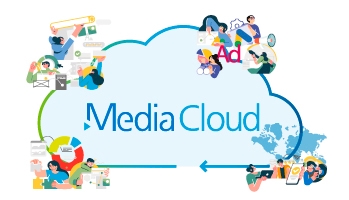
8 essential readings for understanding modern journalism
We have compiled nine readings that are essential for understanding the media business. A collection of reflections, studies, forecasts, perspectives and figures in relation to the key issues currently facing the media sector.
Journalism is more complex than ever nowadays. The media industry has been undergoing major changes for years and these changes in turn raise doubts and concerns. Will newspapers as we know them disappear? Will social media be the definitive channel for information? Will artificial intelligence be consolidated as a writing tool? How will business models for digital subscriptions evolve?
Rapid technological advances and the increase in digital media channels have led to frenetic developments and it is not always easy to stay up to date. Whether you are a journalism professional, a strategic consultant or an industry provider, these readings will provide valuable knowledge for understanding where the media business is coming from and going to.
This is our selection of 8 essential readings that will help you obtain a full overview of the sector:
1. Walter Lippmann and the American Century. 2017. Ronald Steel.
The American writer and historian Ronald Steel narrates the biography of Walter Lippmann, one of the most influential journalists of the 20th century. Lippmann denounced the myth of 'informed citizenry', arguing that citizens are easy to manipulate, absorbed as they are by their work. In his novel Public Opinion, he revealed how power groups shape public opinion. Starting from this premise, he reflects on the duty of journalists as a counter-power for revealing the government's intentions.

2. The Kingdom and the Power. 1969. Gay Talese
Gay Talese tells a human story about one of the most influential institutions in the world at a time of complete transformation. Based on memories, archives and personal letters from management of The New York Times, and hundreds of interviews with journalists about their experiences writing for it, in The Kingdom and The Power, Talese unwraps the story of the iconic American media outlet.

3. Automating The News. How Algorithms Are Rewriting the Media. 2019. Nicholas Diakopoulos.
An analysis of how artificial intelligence and big data are transforming investigative journalism. Nicholas Diakopoulos, an expert in software and media, reflects on machine-generated journalism and shows that there is no real risk of news professionals being replaced by algorithms and artificial intelligence.

4. Newsmakers: Artificial Intelligence and the Future of Journalism. 2020. Francesco Marconi.
A full analysis of the potential of algorithms and artificial intelligence to improve work processes for journalists. He provides case studies from his own experience to sustain that AI improves journalism but does not automate it: journalists now have the opportunity to make the most of time freed up by artificial intelligence to analyse information in more depth.
Newsmakers: Artificial Intelligence and the Future of Journalism.

5. Innovation in News Media World Report. 2022-23. Juan Señor.
This is the essential annual report on global trends in the media industry, drawn up by Media Consulting Group for WAN-IFRA. The latest edition gives details of success stories in relation to the transition from print to digital, examples of sustainable business models and ideas about how to turn readers into subscribers.

6. Metro Dailies in the Age of Multimedia Journalism. 2020. Mary Lou Nemanic.
Mary Lou Nemanic provides five examples of best practices from local newspapers that are adapting to digitalisation and tells us how newsrooms have gone from providing information in printed format only to using several platforms simultaneously.

7. Journalistic Metamorphosis: Media Transformation in the Digital Age. 2020. Jorge Vázquez-Herrero, Sabela Direito-Rebollal, Alba Silva-Rodríguez and Xosé López-García.
A book that looks at the most important changes in journalism over recent years: the impact of technological innovations, the explosion of the digital ecosystem, new business models, etc. It is a resource to help our modern media professionals identify best practices in a constantly evolving panorama.
Journalistic Metamorphosis: Media Transformation in the Digital Age.

8. Newsroom Confidential: Lessons (and Worries) from an Ink-Stained Life. 2022. Margaret Sullivan.
Margaret Sullivan was the first female journalist to be the public editor of The New York Times and she is still one of the most influential professionals in the sector. In this book, Sullivan narrates the most important experiences in her career to reveal how the citizenry has lost its trust in the media and what journalism needs to regain it now.
Newsroom Confidential: Lessons (and Worries) from an Ink-Stained Life.





